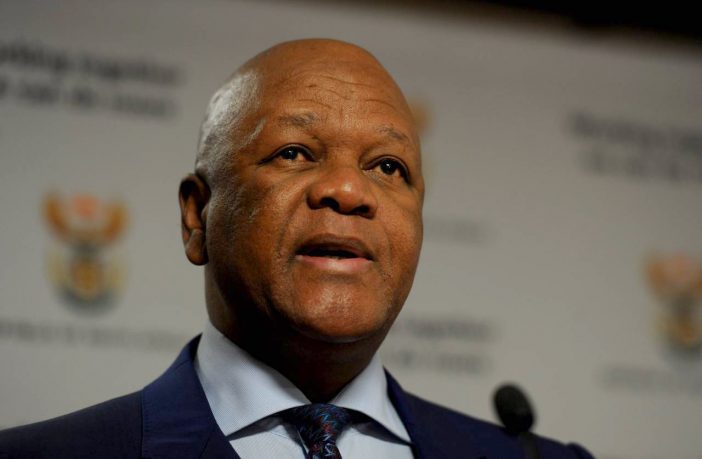- Addressing delegates during the second day of SAWEA’s annual Windaba, the Department of Energy acknowledged the Wind sector’s ability to attract substantial investment into the country.
- Minister Radebe confirmed government’s commitment to providing investor certainty.
- The Minister also acknowledged the need to address grid integration issues, including the application of battery storage and smart grid technology to support the management of variable generation resources.
Addressing delegates during the second day of SAWEA’s annual Windaba conference the Department of Energy (DoE), acknowledged the Wind sector’s ability to attract substantial investment into the country; to significantly contribute to the country’s reduction of greenhouse gas emissions; and to drive down the cost of power through competitive pricing.
Referencing the success of the Renewable Energy Independent Power Producer Procurement Programme (REI4P) in bringing in investments of over R200 billion between 2011 and 2015, Minister Radebe confirmed government’s commitment to providing investor certainty, “Based on increasing performance in the Wind and Solar Energy sectors, I continue to invite investors to consider South Africa as an investment destination with huge potential to grow in a politically stable environment.”
Speaking on policy, Rabebe said that globally it has been proven that a conducive policy environment has the greatest impact on the growth of the renewable energy sector and that government understood it would need to adopt enabling policies and regulatory frameworks to catalyse investment and to attract investors.
Together with partners, the Ministry of Energy has embarked on improving wind resource mapping in South Africa through its Wind Atlas. It had also constructed 18 wind masts across 9 provinces, which would help with management and planning of wind resource investment allocations.
The Minister made clear the interlinkages between the country’s economic emancipation and the provision of affordable energy to a broader population, whilst reducing carbon emissions through the diversification of the national energy portfolio. “Climate change is one of the foremost challenges facing human-kind today and should we ignore this challenge, we would be doing that at our own peril,” stated Minister Radebe.
Radebe said it was critical to diversify the country’s energy portfolio because of South Africa’s record of “relatively high” greenhouse-gas (GHG) emissions when measured per capita.
According to the World Resources Institute Climate Analysis Indicator Tool, South Africa’s GHG profile is dominated by emissions from the energy sector, which accounted for 84% of the country’s total emissions in 2012. Sixty per cent of the emissions are due to electricity and heat, 15% from manufacturing and construction, 12% from transport and the balance from other energy sub-sectors.
Radebe went on to explain that South Africa’s ratification of the Paris Agreement has reinforced its commitment to the deployment of renewable energy to reduce greenhouse gas emissions contribution to transition to a low-carbon economy. “The ambition for decarbonisation and zero greenhouse gas emission entails a far-reaching commitment across economic sectors and activities. In the energy sector, it implies a switch to the highest possible penetration of renewable energy and other cleaner technology measures as soon as possible,” he added.
In conclusion, the Minister acknowledged the need to address grid integration issues, including the application of battery storage and smart grid technology to support the management of variable generation resources. “The integration of the power, energy efficiency, heating/cooling, transport and storage sectors offers significant opportunities for increasing the share of variable renewable energy generation into the energy system while expanding the use of renewable energy in other end-use sectors such as heating and cooling. With the coupling of various energy sectors, the prospect for further decarbonisation of the economy becomes a real possibility.”
Author: Bryan Groenendaal
Source: TM Communications















